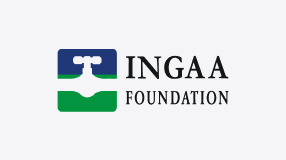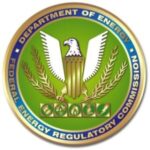Stay Current
Over the past decade perhaps no external factor has influenced the energy industry more than technology. From the wide spread use of automated real-time telemetry to using the Internet to conduct daily operations such as nominations, scheduling and invoicing, technology has drastically changed the way and the speed in… Read More
More than 500 new gas-fired generation projects are in various stages of consideration or development around the country. The capacity of these proposed projects totals some 280,000 megawatts, an increase of more than 35 percent of the currently installed U.S. capacity base of 750,000 MW. Yet many of these projects… Read More
Natural gas plays a prominent role in our nation’s energy mix; it is the fuel of choice for the rapidly expanding U.S. electricity generation market. Rising consumer demand, national security concerns, environmental needs and economic competitiveness require that we continue to find new sources of natural gas in North America. Read More
Recent right-of-way rental fee proposals by the U.S. Bureau of Land Management (BLM) could increase fees for natural gas pipelines by more than 100 times, which could negatively impact national security, the successful implementation of the U.S. National Energy Policy and U.S. living standards. In 1999 the BLM… Read More
Introduction In September 1999 the Federal Energy Regulatory Commission (FERC) issued Order No. 608 that set out a voluntary program for increasing stakeholder involvement in pre-application activities by allowing applicants, at their election, to participate in a collaborative process that includes environmental analysis and issue resolution. … Read More
During the 1990s, there was a major effort to develop, demonstrate and improve natural gas-based emission control technologies for coal-fired power plants. The two primary technologies are gas cofiring and gas reburn. The purpose of this report is to provide a review of the current status and applicability of… Read More
Over the past decade, perhaps no external factor has influenced the energy industry more than technology. From the wide spread use of automated real-time telemetry to using the Internet to conduct daily operations such as nominations, scheduling, and invoicing, technology has drastically changed the way and the speed in which we… Read More
While INGAA recognizes that the Commission has made efforts to meet certain of the objections raised by the industry in comments on the Commission’s Notice of Proposed Rulemaking (“NOPR”) in this matter, the Final Rule adopted by the Commission is too broad, and the new requirements are unnecessary to… Read More
INGAA filed an intervener’s reply brief in the HIOS/Petal litigation in the Court of Appeals for the DC Circuit. INGAA argues that FERC’s new rate of return policy, by basing pipeline returns on the returns earned by lower-risk LDCs, disregards the increased competition FERC has successfully fostered in the… Read More
INGAA argues that FERC departed from precedent in permitting use of lower-risk LDCs in the proxy group for setting Petitioners’ rates, and arbitrarily foreclosed use of gas pipeline MLPs as proxies for determining a gas pipeline’s rate of return. Read More
This natural gas pipeline impact study has been conducted at the request of the Interstate Natural Gas Association of America Foundation (INGAA Foundation). In order to determine the impact of natural gas pipelines on real estate, several objectives were established through research of case law, professional literature, and articles in… Read More
In January 1999, the INGAA Foundation published Pipeline and Storage Infrastructure for a 30 Tcf Market. The report was the first in a series of studies examining the opportunities and challenges facing the natural gas industry in serving the growing natural gas market. The 1999 study focused on the pipeline… Read More
Policymakers been systems, looking particularly at new integrity inspections. One of the key questions being raised in these forums is whether there should be a specific integrity inspection interval for natural gas pipelines, and if so, what the appropriate interval should be and what technology should be used. This report… Read More
The Gulf of Mexico is one of the nation’s most important natural gas supply areas. Offshore production in the Gulf provides U.S. markets with 26.5 percent of indigenous gas supplies, and forecasters are predicting significant increases in U.S. gas production from the region. This study found that the natural gas… Read More
The Interstate Natural Gas Association of America (INGAA) Foundation commissioned ENSR International (ENSR), an environmental consulting firm, to undertake a study to solicit, assimilate, and present the natural gas transmission Industry reactions to the proposed revisions of the Federal Energy Regulatory Commission’s (FERC’s) Upland Erosion Control, Revegetation, and Maintenance Plan… Read More
Natural gas provides 25 percent of the basic energy needs in the U.S., but many consumers are unfamiliar with the pipeline industry that ships that natural gas. The 32 INGAA member companies that operate the 180,000-mile underground interstate natural gas pipeline system have been quietly, safely and reliably delivering natural… Read More
Wirthlin Worldwide’s research conclusions and strategic recommendations comprise what we consider a meaningful paradigm shift in the natural gas industry’s approach to siting pipelines in the United States. This enhanced approach integrates an expanded emphasis on the pre-siting process with the already successful foundation of current industry practices. … Read More
May 2, 2007 The Honorable Jeff Bingaman Chairman Energy and Natural Resources Committee U.S. Senate Washington, DC 20510 Dear Mr. Chairman: On behalf of the members of the Interstate Natural Gas Association of America (INGAA), I am writing to express… Read More
Over the next 20 years, US natural gas demand will grow by 50%. According to a recent study, pipeline companies will need to install almost 50,000 miles of pipe to meet the growing market for natural gas in the US from 2001 to 2015. To meet this growing demand,… Read More
This report provides the results of an evaluation of the units impacted by national regulations to control hazardous air pollutants (HAPs) from natural gas-fired combustion turbines and reciprocating internal combustion engines (IC engines). Impacts were estimated using the Engine and Turbine Database (ETDB), an industry database developed through support… Read More





